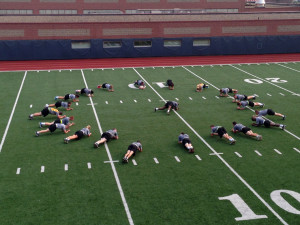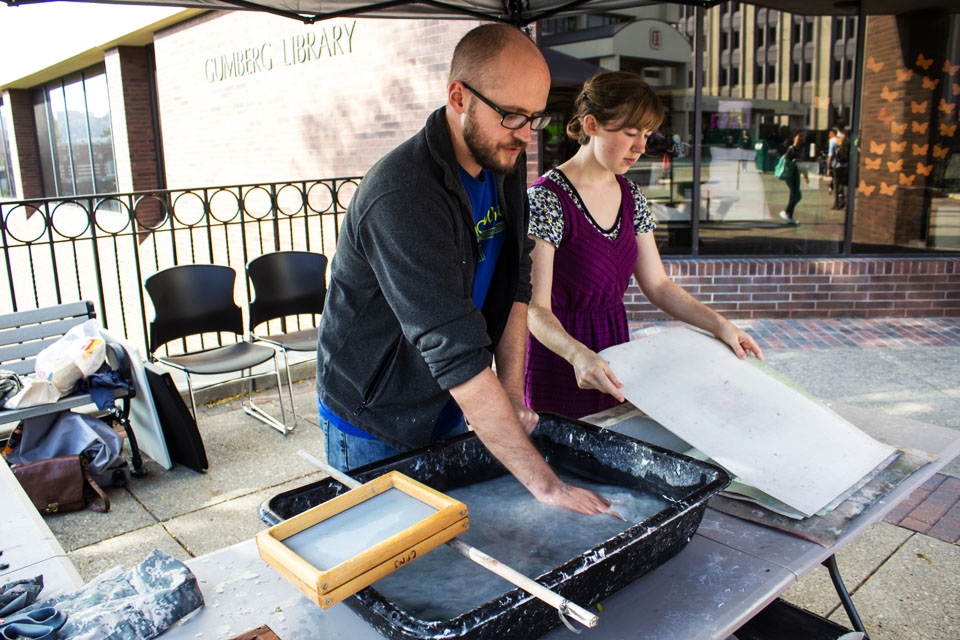

Duquesne ROTC cadets cool down after a three-mile morning run. Two cadets experienced training overseas in June.
By Carolyn Conte | The Duquesne Duke
Hiking mountain with Thai soldiers and rappelling from Blackhawk helicopters is not on most Duquesne students’ resumes. However, when Andrew Zumpino and Jesse Martin graduate from the university, they will both be able to list these feats as accomplishments.
Zumpino and Martin are members of Duquesne’s Reserve Officers’ Training Corps, a military training program available at many colleges across the county.
Duquesne’s ROTC, in conjunction with Point Park’s program, comprises the Delta Company of the Three Rivers Battalion. Duquesne’s ROTC includes the Army, Navy and Air Force.
In late June, Martin and Zumpino were selected for deployment to Thailand through the Cultural Understanding and Learning Program. There, they experienced military-to-military contact, humanitarian service, and education about Thai culture, according to Martin.
“I was lucky enough to stay in their Royal Military Barracks, and live like their cadets,” Martin said.
However, both cadets faced many challenges. Martin was bitten by a monkey and required four shots. The humid heat also posed a serious danger. The experience made both Zumpino and Martin reflect on living conditions taken for granted in Pittsburgh.
Zumpino said communication was sometimes difficult.
“Many of the [Thai cadets] could not articulate their meaning in English well, so it was hard to engage in conversation,” Zumpino said.
But there were also many positive experiences, he said.
“The people of Thailand are the nicest people I’ve ever met,” Zumpino said. “It was quite overwhelming.”
Three days after returning from his Thailand excursion, Martin arrived in Fort Benning, Georgia, to attend the Air Assault School, an aggressive training camp. It is known as the “Ten Toughest Days in the Army,” according to the Army’s website.
Martin said he felt “pressured” to succeed, since he was the first cadet in at least 15 years to represent Duquesne at the camp. Applicants to this program must be nominated by an instructor and fulfill physical requirements.
The camp began with 314 students, but ended in 227, a 72 percent retention rate. This was much higher than the 45 percent retention rate of the previous summer’s class.
“It’s a stressful and lonely time,” Martin said. “You’re a thousand miles from home, if you make a friend they could go home the next day…Personal motivation is 50 percent of the task. You saw motivated people were the ones who passed.”
Training included a 90-foot helicopter rappel, a 12-hour bicycle race and a 12-mile march carrying heavy backpacks.
Back on campus at Duquesne, ROTC cadets have different obstacles to overcome, according to Master Sgt. Shane Hancock.
“The biggest challenge is awareness,” Hancock said.
The program needs to focus on recruitment to remain vibrant, according to Hancock.
“This year we’re going to create a website, and we also plan to partner for a mentorship program with the Spiritans on campus.”




